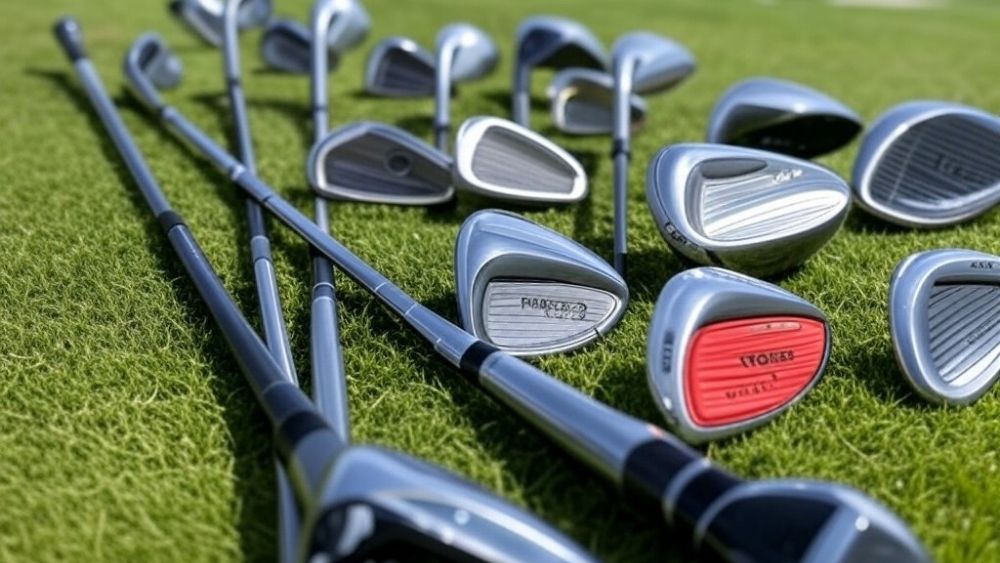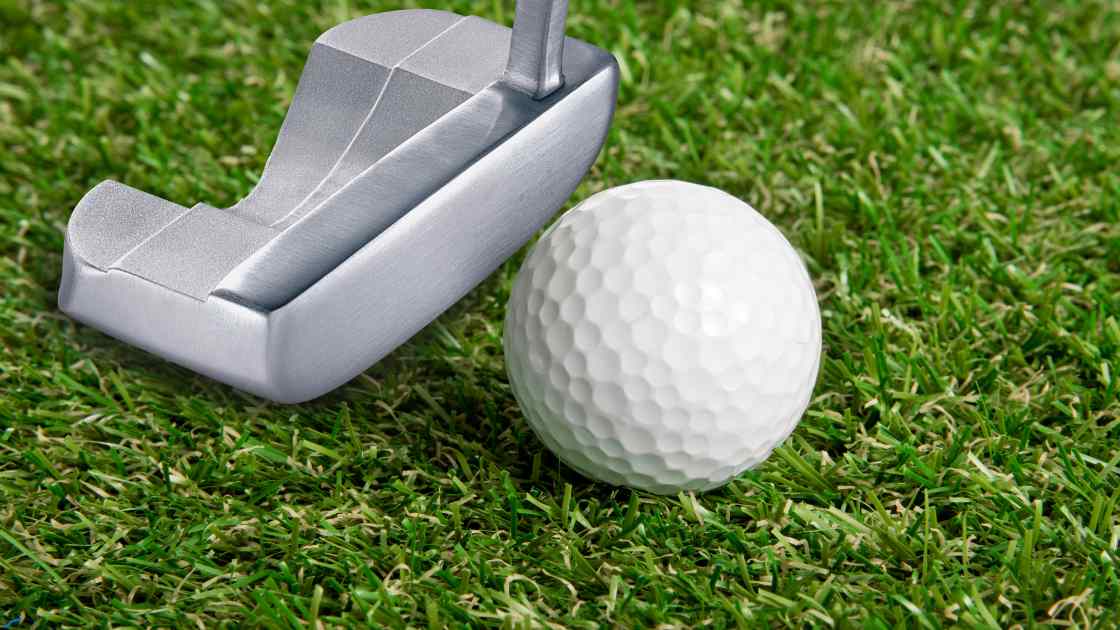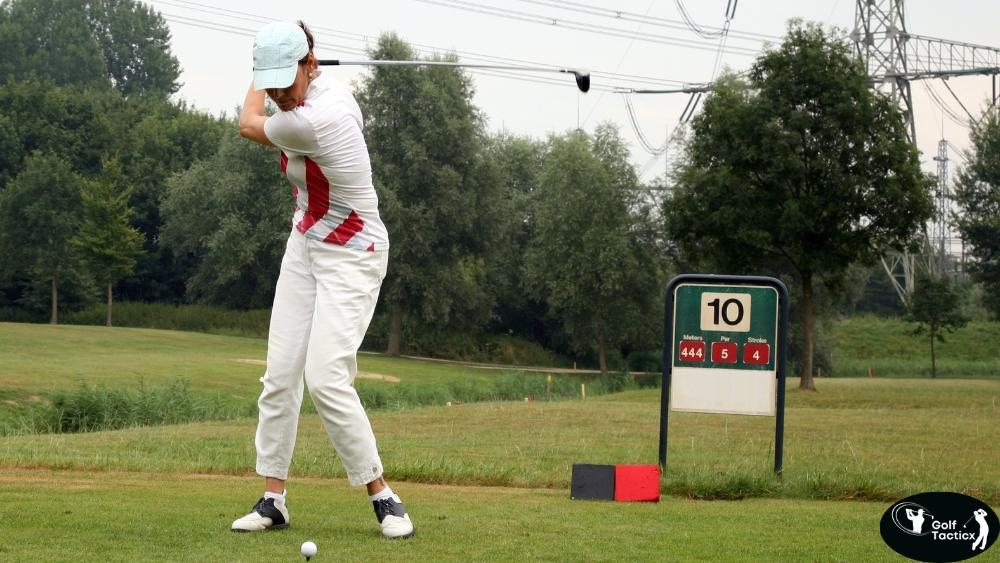Starting your journey into golf can be exciting, but the variety of golf clubs available may seem overwhelming. As a beginner, it’s important to understand the essential golf clubs that will help you get started. Don’t worry I’ll break it down for you in simple terms so you can focus on improving your game, not the gear.
In the previous post, we discussed The Importance of Proper Golf Etiquette and how it enhances both your game and experience on the course
What Golf Clubs Do You Really Need?
As a beginner, you don’t need a full set of golf clubs right away. In fact, a small selection of clubs will serve you just fine. Here’s a breakdown of the essential golf clubs you need in your bag:
Driver
The driver is the longest club in your bag and is used primarily for tee shots on long holes. It’s designed for distance, so expect to hit the ball farther than with any other club. When starting out, you’ll want a driver with a larger sweet spot for more forgiveness on off-center hits.
Why You Need It:
- Great for long-distance shots
- Helps you get the ball in the air with less effort
- Essential for teeing off on par 4 and par 5 holes
Fairway Woods (3-Wood and 5-Wood)
These clubs are versatile and can be used both off the tee and from the fairway. They are a bit shorter than the driver, giving you more control. A 3-wood is great for longer shots, while a 5-wood is slightly easier to hit for shorter distance.
Why You Need Them:
- Use them for both long drives and fairway shots
- Provides a good balance of distance and control
- Easier to hit than a long iron
Hybrids (4 and 5 Hybrids)
Hybrids combine the best of both worlds by offering the forgiveness of a wood and the control of an iron. Hybrids are particularly helpful for beginners because they’re easier to hit than long irons.
Why You Need Them:
- Replaces difficult-to-hit long irons
- Great for fairway shots and approach shots from the rough
- More forgiving on off-center hits
Irons (6, 7, 8, 9)
Irons are typically used for approach shots to the green. As a beginner, it’s a good idea to focus on the middle irons (6, 7, 8, and 9) since they’re versatile and can cover a range of distances.
Why You Need Them:
- Essential for approach shots and hitting the ball accurately
- Use them for shots to the green from the fairway
- Provide control and consistency
Pitching Wedge
The pitching wedge is a short iron used for approach shots that require a high ball flight and a soft landing. It’s also the club you’ll often use for chipping around the green.
Why You Need It:
- Great for short approach shots
- Used for chipping around the green
- Provides accuracy and control on shorter shots
Sand Wedge
While not always necessary for complete beginners, a sand wedge is useful for bunker shots or approach shots from the sand. Its wider sole helps prevent digging into the ground.
Why You Need It:
- Useful for bunker shots
- Helps you get under the ball and avoid digging
- Great for short approach shots around the green
Putter
Arguably the most important club in your bag, the putter is used on the green to roll the ball into the hole. You’ll spend a lot of time with this club, so it’s essential to find one that feels comfortable and suits your putting style.
Why You Need It:
- Used to finish off holes
- Essential for getting the ball in the hole
- Can make a huge difference in your scores
The Key Factors to Consider When Choosing Your Clubs
Now that we know the basics of what clubs you need, here are some important factors to consider when choosing them:
Shaft Material
- Steel Shafts: Heavier and offer more control. Good for players with faster swing speeds.
- Graphite Shafts: Lighter and more forgiving. Ideal for beginners and those looking for more distance.
Club Length
- Make sure your clubs are the right length for your height and swing. A custom fitting can help ensure you’re using clubs that suit your body.
Loft
- The loft refers to the angle of the clubface. Higher lofted clubs (like the pitching wedge) are easier to hit, while lower lofted clubs (like the driver) are designed for distance.
Club Fitting
- While you can start with a basic set of clubs, eventually getting custom-fitted clubs will enhance your performance. A professional fitting takes into account your swing and body typ, ensuring that each club is tailored to your needs.
Golf Club Brands for Beginners
When you’re starting out, it’s tempting to buy the most expensive set you can find. However, there are plenty of affordable, quality brands that offer great beginner golf clubs. Some popular options include:
- Callaway: Known for producing forgiving clubs with a large sweet spot, perfect for beginners.
- Wilson: Offers affordable, well-designed clubs for those just starting out.
- TaylorMade: Great for clubs that provide distance and forgiveness, ideal for players looking to improve.
- Cobra: A great option for beginner-friendly drivers and fairway woods.
How to Choose the Right Set for You
When picking your first golf set, remember that quality doesn’t always mean quantity. A few good clubs that you’re comfortable with are better than a full set that doesn’t suit your needs. As a beginner, focus on learning the fundamentals, and you can expand your set as you improve.
Conclusion
Starting with the right golf clubs will set you up for success as you begin your golfing journey. Remember, you don’t need a full set right away—just a few key clubs will be enough to help you start enjoying the game. The clubs listed above are the essentials, but as you progress, you can start customizing your bag based on your needs and preferences.
Stay tuned for the next post, where we’ll dive into the differences between irons, woods, and wedges. Trust me, you’ll want to know how each of these clubs can help improve your game.
















Leave a Reply